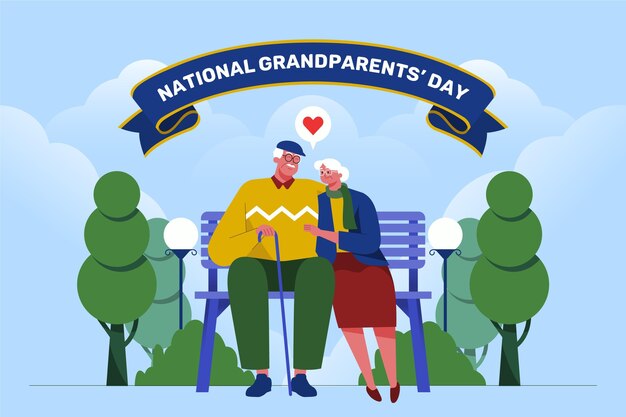
Are you curious about early retirement and financial independence? Let me share a fascinating story about Lauren and Steven, a couple who managed to retire from their full-time jobs at the young age of 29 by saving diligently.
After quitting their jobs, they’ve done some amazing things like spending six months in Hawaii and visiting every U.S. National Park. In this interview, you’ll find out:
– How they handle health insurance without full-time jobs
– What Lean FIRE is all about
– When they started saving for early retirement
– How they keep their expenses low
– Their travel expenses in early retirement
– The jobs they had before retiring
– Whether they still work or not
This interview is packed with valuable insights into achieving early retirement. Enjoy!
1. Tell me your story. Who are you and what do you do?
I’m Steven Keys, and I co-founded the blog Trip Of A Lifestyle with my wife, Lauren. We retired from full-time work at 29 by working middle-class jobs, living frugally, and investing 60-80% of our incomes into broad stock and bond market index funds. Contrary to what many might think, we didn’t live a deprived life. We had fun experiences, like a six-month honeymoon in Hawaii, while keeping our yearly expenses between $18,000 and $22,000 combined. Traveling and enjoying life can go hand-in-hand with being financially responsible!
2. Can you explain how early retirement works? What is Lean FIRE?
“FIRE” stands for “Financial Independence / Retire Early.” It’s based on the 4% Rule, which means if you have at least 25 times your annual expenses invested in a mix of stock and bond market index funds, you can live off withdrawals from that portfolio for life, even after accounting for inflation. “Lean FIRE” is about achieving this by keeping living expenses low. For example, if you need $20,000 a year, you can retire with a portfolio of $500,000. Saving 50% of your income can get you to FIRE in about 16 years, and saving 80% can get you there in just 6 years.
3. When did you begin saving for early retirement?
We were lucky to discover financial independence concepts right after college, so we never had to drastically cut expenses. We continued living like “broke college kids” while earning full-time incomes, saving over $100,000 in two years on public schoolteacher salaries. By age 25, we had a mortgage-free home and a net worth of over a quarter-million dollars, all while earning under $50,000 a year each.
4. What made you want to retire early?
For us, early retirement is about freedom, not just “not working.” Our first taste of freedom came after college graduation in 2012 when we took a 45-day road trip from Florida to Alaska. That experience changed us. We recommend taking a “mini retirement” during your journey to FIRE to gain perspective on why you’re saving.
5. Would you say that you live comfortably?
We wake up without alarm clocks in a mortgage-free condo by the Atlantic Ocean. We don’t just live comfortably; we live lavishly, spending only $25,000 to $30,000 a year combined. Our secret is reducing waste, not depriving ourselves. We share one car, shop smart, and enjoy life without feeling the need to buy more.
6. How much do you spend traveling each year? What do you spend your money on these days?
We love traveling and have visited all 63 US National Parks. Travel expenses vary, but we’ve found hacks to keep costs low, like taking a 2-month road trip for around $4,000 with our camper van. We might spend more on international travel soon, offsetting costs by renting out our home.
7. What career did you have before you retired? Do you think you need a high income to retire early?
I taught physics and later tutored college students, while Lauren did marketing for small businesses. Our starting salaries were in the high $30,000s, yet we saved over 50% of our incomes. You don’t need a high income to retire early, but earning more makes it easier. Our incomes eventually reached nearly $90,000 each, speeding up our savings.
8. Do you still earn an income in early retirement?
Yes, we do! I freelance about 10 hours a week, and Lauren works on a project for about an hour a week. We also do photography gigs. We retired with slightly less than 25 times our annual expenses saved, knowing we’d still earn some money. Our blog also makes a small amount, which we mostly donate to charity. If you retire early, expect to make extra money just for fun at some point.
9. What sacrifices or hard decisions did you have to make to reach early retirement?
We never felt financially constrained. The hardest part was that friends and family didn’t always understand our choices. Stay true to your goals, regardless of others’ opinions.
10. What do you do for health insurance in early retirement?
We buy our health insurance, which costs between $250 and $550 a month, depending on tax credits. We also use a health savings account (HSA) for tax benefits.
11. What are your long-term plans now that you are retired?
Our main passion project is our blog, helping young people with information about financial independence. In the future, we might travel more, do charity work, start a business, raise a child, or even go back to school. Financial independence gives us the freedom to explore endless possibilities.
12. If you were starting back at the beginning, what would you do differently?
We’d skip trying to pick stocks and high-fee mutual funds and go straight to low-cost, passive index funds.
13. Lastly, what is your very best tip for someone who wants to reach the same success as you?
Practice gratitude; appreciate what you have, especially your relationships and health. When your spending reflects this mindset, you’ll find yourself getting richer much faster.
Are you interested in reaching early retirement or financial independence? Why or why not?